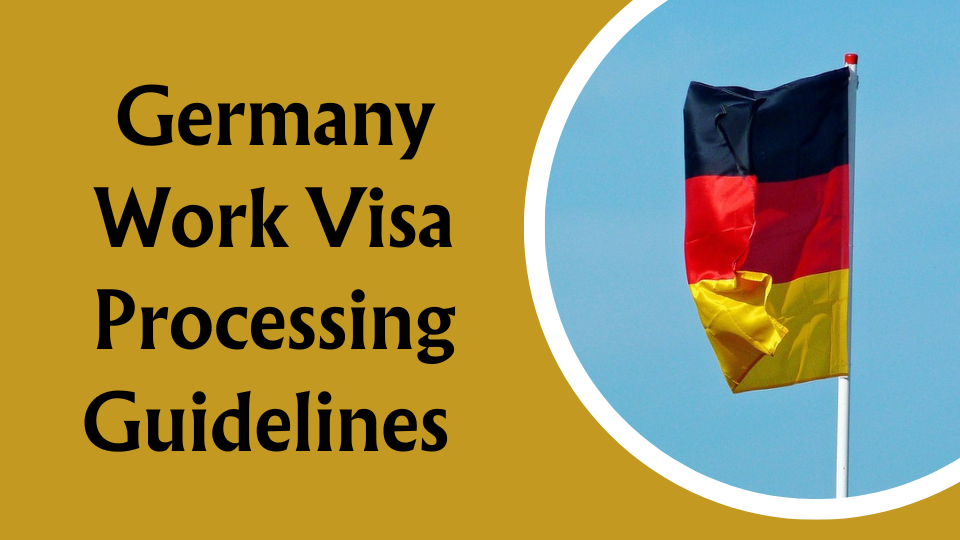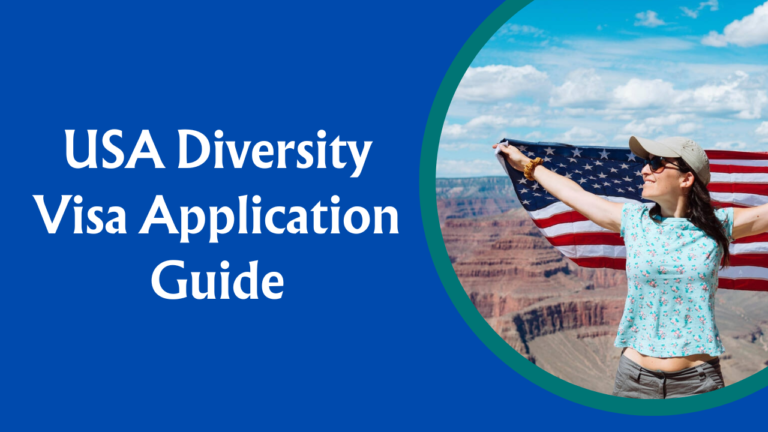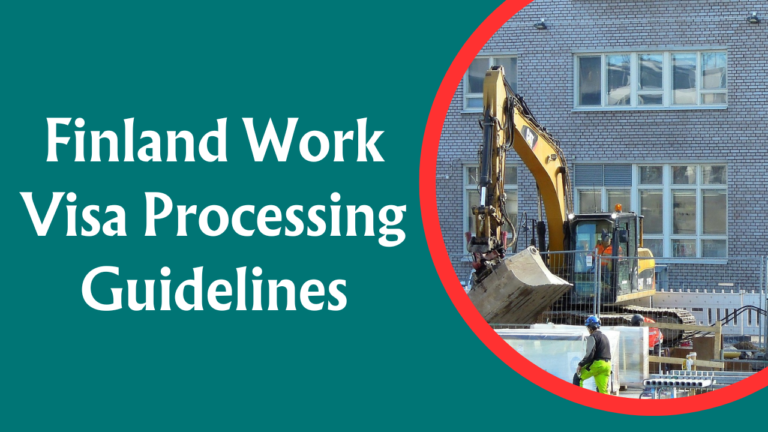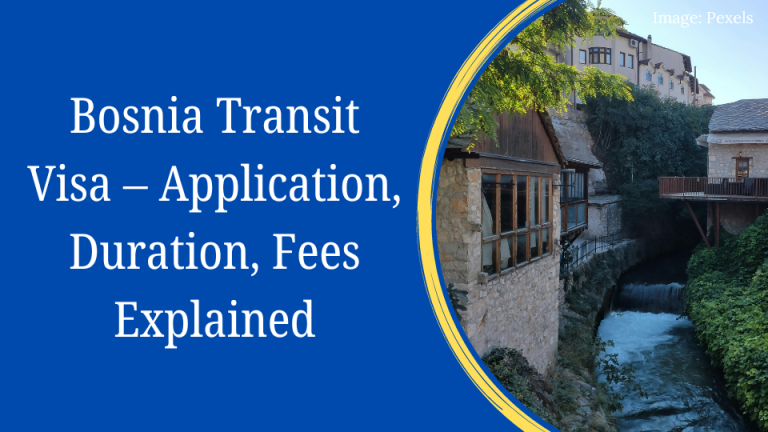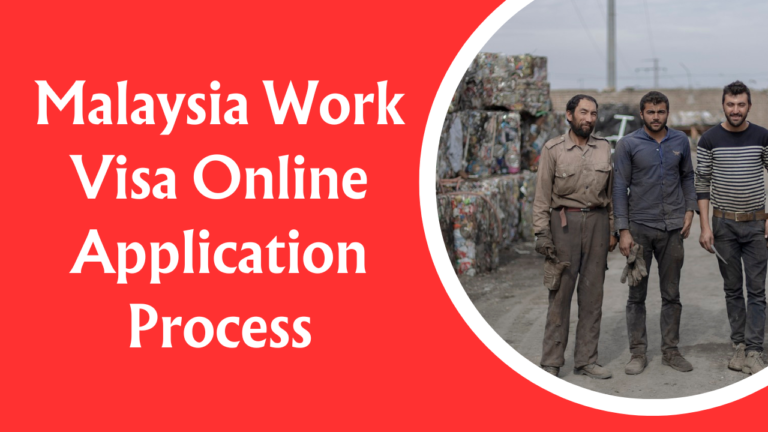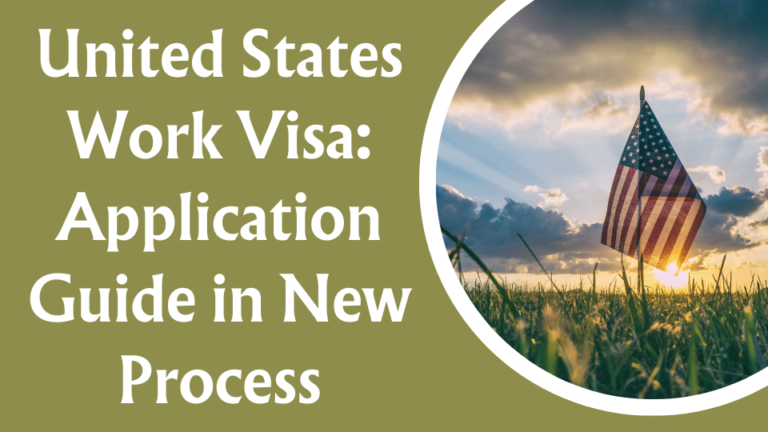Germany Work Visa Processing Guidelines 2024
The Germany Work Visa Processing Guidelines for 2024 are outlined succinctly below. Now, let’s delve into the details of obtaining a work visa in Germany.
Germany offers numerous opportunities for individuals looking to work in the country, but navigating the visa process can be complex. Understanding the guidelines and requirements is crucial to ensure a smooth and successful application. We will outline the key steps and procedures involved in obtaining a work visa in Germany in 2024.
From gathering the necessary documentation to submitting the application and attending interviews, we will provide you with a comprehensive overview of the process. Whether you are an employee, freelancer, or business owner, this guide will help you navigate the intricacies of the Germany work visa application process. So let’s get started and explore everything you need to know about obtaining a work visa in Germany.
Types Of Work Visas
Germany offers various types of work visas for individuals who wish to work and live in the country. These visas are subject to specific processing guidelines that must be followed in order to obtain them in 2024.
Germany offers several types of work visas to individuals who wish to live and work in the country. Each visa category has its own set of requirements and benefits. Whether you are a skilled professional, a job seeker, or an individual with a job offer in a high-demand field, there is a work visa option for you in Germany. In this section, we will explore three popular types of work visas: the Skilled Work Visa, the Job Seeker Visa, and the EU Blue Card.
Skilled Work Visa
The Skilled Work Visa is designed for individuals who possess specific skills and qualifications that are in demand in Germany. To be eligible for this visa, you must have a valid job offer from a German employer that is willing to support your visa application. The job offer should be related to your qualifications and should meet the minimum salary requirements set by the German government. Once you have obtained the Skilled Work Visa, you will be permitted to work and live in Germany for an initial period of up to four years. This visa also allows your immediate family members to join you in Germany.
READ MORE: How to Search Perfect Job as a Student in the United States?
Job Seeker Visa
The Job Seeker Visa is an option for individuals who want to relocate to Germany to find employment opportunities. This visa allows you to stay in Germany for a period of six months while you search for a job. To be eligible for the Job Seeker Visa, you must have a recognized university degree or equivalent qualification, and enough financial resources to cover your stay in Germany. While on the Job Seeker Visa, you are permitted to attend job interviews and engage in networking activities to enhance your chances of finding employment. If you are successful in securing a job within the six-month period, you can convert your Job Seeker Visa to a Skilled Work Visa or other suitable work visa.
Eu Blue Card
The EU Blue Card is a work and residence permit designed for highly skilled professionals from non-EU countries. To be eligible for the EU Blue Card, you must have a university degree or equivalent qualifications, and a job offer from a German employer that meets certain criteria, such as a high salary threshold. This visa allows you to work and live in Germany for an initial period of four years and also provides a fast-track option to permanent residence. The EU Blue Card holders enjoy a range of benefits, including the freedom of movement within the EU and family reunification rights.
Eligibility Criteria
When applying for a Germany Work Visa, it’s crucial to meet the eligibility criteria set by the German government. Ensuring that you satisfy these requirements will smooth the visa application process and increase the likelihood of approval.
Educational Requirements
Applicants must hold a recognized qualification or degree relevant to their field of employment. The degree should be equivalent to a German degree or recognized internationally. Proof of educational background, such as certificates, must be provided.
Work Experience
Applicants should possess relevant work experience in their field of expertise. The German government generally looks for a minimum of five years of professional experience, although this may vary depending on the specific occupation. Candidates must demonstrate their work history through references, letters of recommendation, or a comprehensive resume.
Proof Of Financial Stability
Prospective applicants are required to show proof of their financial stability, demonstrating they have the means to support themselves while living in Germany. This can include bank statements, a letter from their employer, or proof of sufficient funds in a blocked account. This financial stability is essential to ensure that the applicant can sustain themselves without becoming a burden on the German social security system.
Application Process
Getting a work visa for Germany can be an exciting opportunity to pursue your career goals in one of Europe’s most dynamic countries. However, it’s essential to understand the application process and the necessary steps to ensure a smooth and successful application. In this section, we will guide you through the main aspects of the application process, including the document checklist, online application, and appointment at the consulate.
Document Checklist
Before starting your work visa application, make sure you have all the required documents in order to avoid any delays or complications. Here’s a comprehensive checklist of the documents you will typically need:
| Valid passport | Proof of employment or job offer |
| Qualification certificates | Proof of accommodation in Germany |
| Health insurance coverage | Financial statements demonstrating sufficient funds |
| Completed application form | Biometric passport photos |
Remember to have all your documents properly organized and translated into German or English if they’re in a different language.
Online Application
The next step is to fill out the online application form. Visit the official website of the German Federal Foreign Office https://www.auswaertiges-amt.de/en/visa-service or the German embassy/consulate in your home country and find the online application portal. Provide accurate information and double-check for any errors before submitting your application. Make sure to save a copy of the completed form for your records.
Appointment At The Consulate
After completing the online application, you will need to schedule an appointment at the German consulate in your home country. The purpose of this appointment is to submit your documents, have your biometric data taken (fingerprints and a digital photograph), and possibly attend an interview. It is crucial to arrive early for your appointment and bring all the required documents in their original form. Be prepared to answer questions about your job offer, qualifications, and reasons for seeking a work visa in Germany.
READ MORE: United States Work Visa: Application Guide in New Process
Once you have completed these steps, the consulate will review your application, and if approved, you will be issued a work visa. The processing time can vary, so it’s advisable to submit your application well in advance of your planned departure date.
Processing Time And Fees
Standard Processing Time
The average processing time for a Germany work visa is around two to three months. However, it’s essential to note that the processing time may vary based on the workload at the embassy or consulate where you are applying. It’s advisable to submit your visa application well in advance of your intended travel date to allow ample time for processing.Expedited Processing
If you are in a rush and need your visa processed quickly, you have the option of expedited processing. By paying an additional fee, you can speed up the processing time and receive a decision on your visa application within a shorter timeframe. The expedited processing option is ideal for those who have urgent work commitments or unforeseen circumstances.Visa Fees
When applying for a Germany work visa, there are certain fees that you need to be aware of. The visa fees depend on various factors such as the type of visa you are applying for, your nationality, and the duration of your stay. It’s crucial to check the official website of the German embassy or consulate in your country to find out the specific fees applicable to your situation.Tips For A Successful Application
When applying for a Germany work visa, it’s essential to carefully follow the processing guidelines to ensure a successful application. To aid you in this process, here are some crucial Tips for a Successful Application:
Complete Documentation
Ensure that you gather and submit all the required documents for your Germany work visa application. This includes your passport, a valid job offer, evidence of qualifications, and any other supporting documents as outlined by the German authorities.
Accurate Information
Double-check all the information provided in your application form to make sure it’s accurate and consistent. Any discrepancies or inaccuracies could lead to delays or even rejection of your visa application. Provide truthful and precise details about your employment, personal information, and travel history.
Professional Assistance
Consider seeking professional assistance from immigration consultants or lawyers who specialize in German visa applications. Their expertise can help you navigate the complexities of the process, ensuring that your application meets all the necessary requirements and is submitted correctly.
Frequently Asked Questions On Germany Work Visa Processing Guidelines 2024
Q1: How Long Does It Take To Process A Work Visa For Germany?
Answer: The processing time for a Germany work visa varies depending on factors such as the workload of the embassy, the completeness of the application, and the applicant’s country of origin. Generally, it can take anywhere from a few weeks to several months.
Q2: What Are The Eligibility Requirements For A Germany Work Visa?
Answer: To be eligible for a Germany work visa, you must have a job offer from a German employer, meet the qualifications and skills required for the job, have a valid passport, and provide supporting documents such as educational certificates and proof of health insurance.
Q3: Do I Need To Speak German To Get A Work Visa For Germany?
Answer: While it is not always mandatory to speak German to obtain a work visa for Germany, having knowledge of the German language can greatly increase your chances of finding a job and integrating into the society. It is highly recommended to have at least a basic understanding of the language.
Q4: Can I Change Jobs On A Germany Work Visa?
Answer: Yes, it is possible to change jobs while on a Germany work visa, but there are certain conditions that need to be met. You will need to inform the immigration authorities about the job change, and your new job should still meet the requirements for obtaining the work visa.
Conclusion
To sum up, understanding and following the Germany work visa processing guidelines is crucial to a successful application process. By adhering to the requirements and completing the necessary paperwork, applicants can increase their chances of securing a work visa in 2024. It’s important to stay informed about any updates or changes in the regulations to ensure a smooth and efficient application process.
